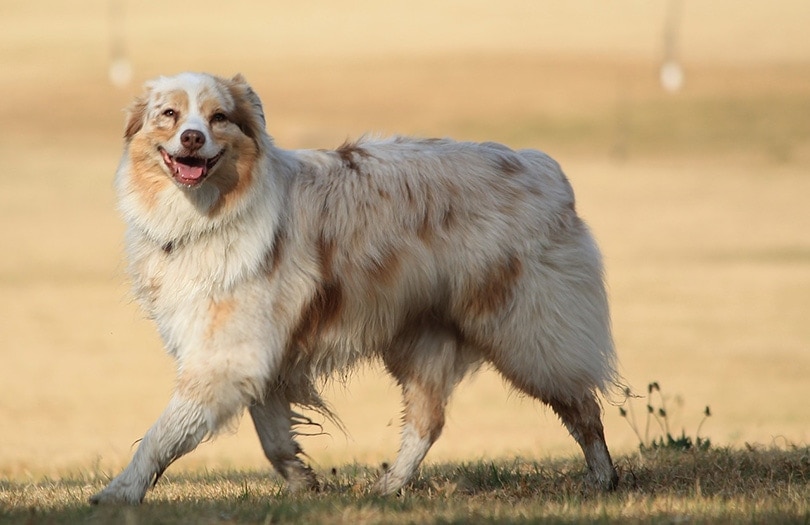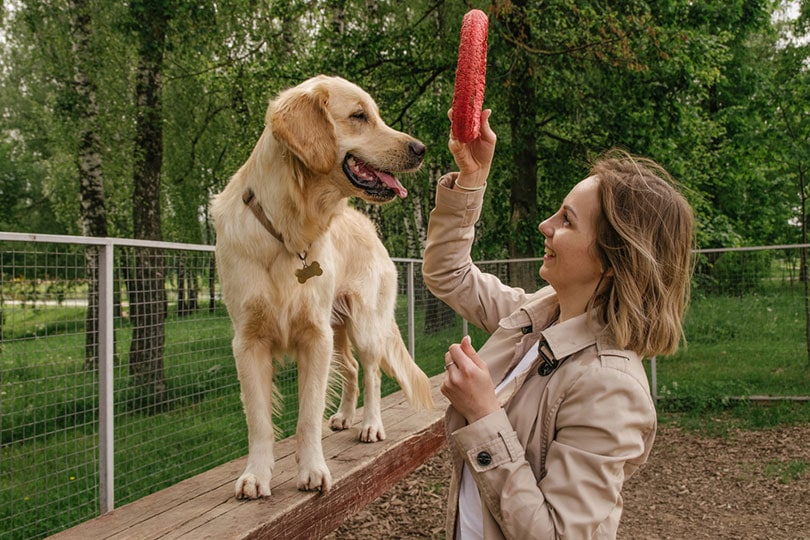Can Maltese Be Left Alone? What You Need To Know!
Updated on
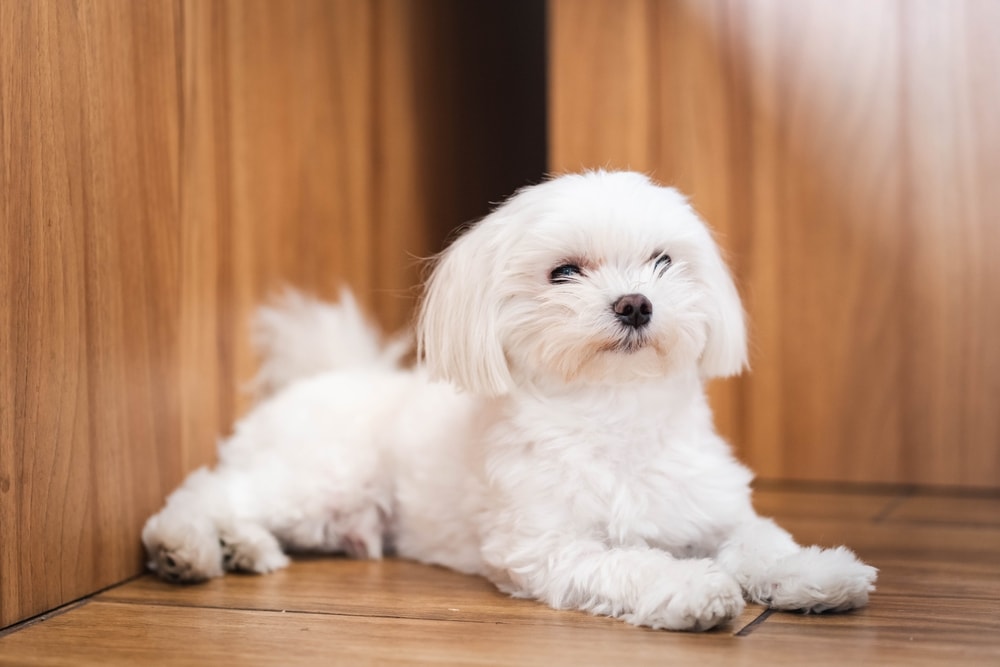
The playful, adorable Maltese is one of the most popular small dogs in the world. These affectionate, sometimes stubborn little dogs are adaptable to most home environments, but will they fit into busy families who are frequently away from home? Can a Maltese be left alone?
Depending on how old they are, their temperament, previous experiences, and physical and emotional needs, healthy Maltese can generally be left alone for 2 to 4 hours and a maximum of 6 hours, approximately. Dogs are social animals and prefer to be with others.
We’ll give you some tips on keeping your Maltese safe and happy when they’re home alone and how to spot signs of separation anxiety later in this article.
How Long Can a Maltese Be Left Alone?
Generally, puppies under 6 months old shouldn’t be left alone for more than 2 hours. Small dogs like the Maltese may need to be supervised even more closely because their size puts them at greater risk of injury. In addition, you need to consider at which point of their potty training they are.
Adult Maltese may be able to tolerate up to 6 hours alone, although 4 to 6 hours is ideal. Your Maltese’s ability to stay alone will depend somewhat on their age, personality, and their physical and emotional needs. You’ll also need to ensure your pup is safe and comfortable when left alone.
Keeping Your Maltese Safe and Happy When They’re Alone
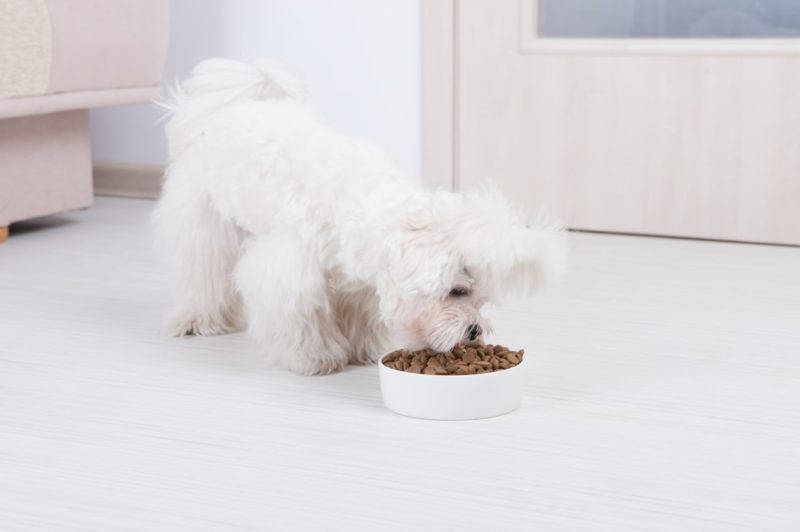
When leaving your Maltese alone, you want to ensure they will be safe, comfortable, and entertained. Taking these steps can be very helpful.
Safety
To keep your Maltese safe, especially as a puppy, consider confining them to a room, or even better, a crate when they’re home alone. Using a crate is one of the simplest ways to keep your Maltese safe.
If you prefer your Maltese to have the run of the house, take steps to dog-proof your home. Make sure any toxic medications, foods, or chemicals are stored safely out of reach. Use safety gates to block access to trash cans, stairs, or litter boxes.
If your Maltese is a chewer, prevent access to electric cords or any items that could be destroyed and swallowed. Multi-pet households should consider separating dogs who don’t get along, especially if there is a significant size difference. Maltese don’t always behave like small dogs and could get into trouble.
Comfort
Provide your Maltese with a place to sleep, especially if they’re confined to one room or a crate. Make sure they have water that can’t be spilled or tipped over. Depending on how long your Maltese will be alone, you may also want to leave treats or food. However, you’ll want to ensure there’s no chance your dog could make a mess or choke on any snacks you leave.
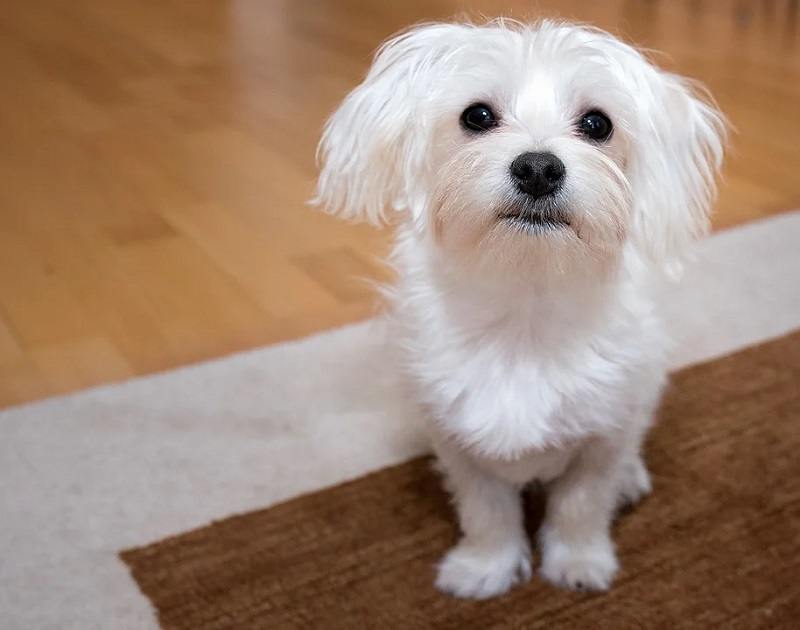
Entertainment
Well-adjusted Maltese may simply snooze away the hours they’re left alone. However, you’ll still want to ensure they have options to keep them busy and entertained. Consider leaving the TV or music playing to provide sound enrichment.
Place your dog’s crate where they have the option to see outside activity from neighbors or nature, and provide your pup with safe toys. Consider using a pet camera or similar technology to watch your Maltese while you aren’t home.
Signs of Separation Anxiety
The Maltese can be suspicious of strangers but bond tightly with their families. Unfortunately, separation anxiety is one of the most common behavioral problems pet parents face. Common signs of separation anxiety include:
- Pooping or peeing in the house
- Vocalizing when left alone
- Destructive behavior
- Obsessive behavior, such as excessively licking themselves
- Shaking, drooling, or even vomiting when left alone
Dogs with separation anxiety may display these signs if they suspect you’re about to leave and when they’re at home alone. However, some of them can also indicate other medical or behavioral problems. See your vet to rule out medical conditions first and discuss treatment for behavior issues if needed.
Preventing and Treating Separation Anxiety
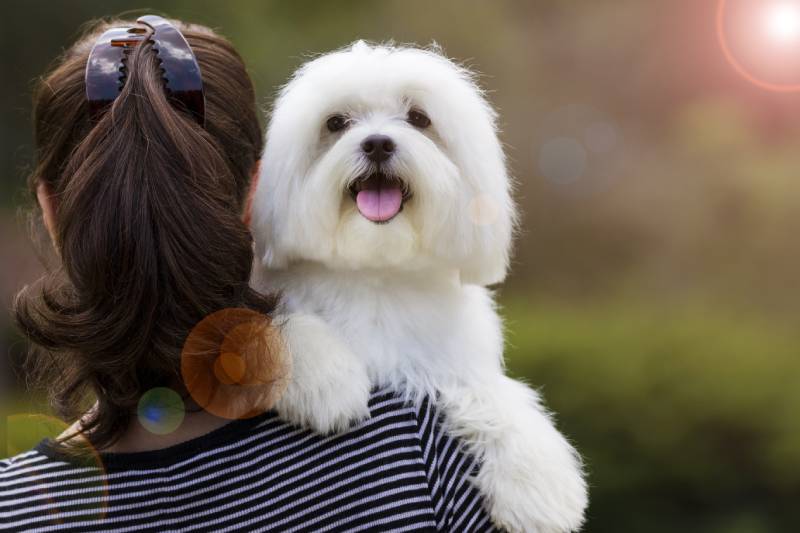
Socializing and training your Maltese from a young age can help prevent separation anxiety. A confident, well-adjusted dog will be less likely to worry about their owner’s absence. As we mentioned, providing a safe, comfortable environment and ways for your Maltese to stay busy will also help.
If your Maltese develops separation anxiety, you will benefit from assistance from your vet or a trainer to help solve the problem, especially if your dog is hurting itself or being destructive. Anti-anxiety medications may be required in some cases.
Two simple steps that can help is to not make a big deal over leaving the house and to vary your routine, so your Maltese can’t predict you’re about to leave and build up anxiety. Don’t make a fuss over saying goodbye or greeting your dog, either.
Sometimes, having a predictable daily routine can help ease separation anxiety. For example, your Maltese will learn that it gets a morning walk and breakfast before being left alone when you return for dinner at similar times each day.
Get your dog used to being left alone by leaving for short periods, such as 10 to 15 minutes, and gradually increasing the time you’re gone. Reward your dog with treats and praise when they behave calmly while you’re gone.
Conclusion
Most Maltese can tolerate being left alone for at least a few hours as long as they’re safe and comfortable. Follow the tips we mentioned for the best chances of success. If your Maltese is struggling with staying home alone, consider other options, such as hiring a pet sitter or enrolling in a doggy daycare.
In general, Maltese are adaptable dogs, and that includes adjusting to being left alone. Give your dog plenty of attention when you are home, and make sure they have all they need when they need to spend some time home alone.
Related Reads:
Featured Image Credit: Plernz, Shutterstock



